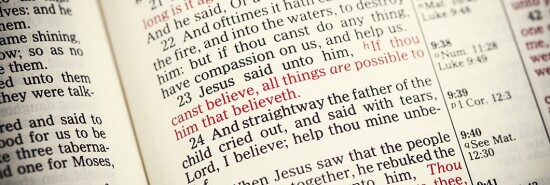
And the Word dwelt among us, full of grace and truth
Washington Examiner
Video Embed
The Gospel of John opens with these words: “In the beginning was the Word, and the Word was with God, and the Word was God.”
That and the next 13 verses are among the most poetic and the trove of all human literature. Of Christmas, John says “the true light that gives light to everyone was coming into the world.”
THOSE WHO READ THE BIBLE HAVE FAR MORE HOPE
So the Son of God is proclaimed as the Word and as true light. The former description is itself a play on words. As written in Greek, the word for “the Word” is “logos,” which is a sort of super-logic or super-knowledge that most dictionaries today translate as divine reason or wisdom, implicit and manifest throughout the cosmos. It is a wisdom deeper and more important than empirical evidence can capture. Christ is, then, delineated as the preexisting source of the deepest wisdom there is, the wisdom of God’s creation.
In that light, let us all celebrate this holiday with a spirit of openness, a desire for wisdom, and a willingness to act on it.
How do we discern this exalted wisdom or work with the roughest human attempts to approximate it?
First, the wisdom, the Word, isn’t political, but there are things that deep wisdom tells us about the civic world. Again and again the Old and New testaments tell us God created us for “freedom,” or as 2 Corinthians puts it, “where the Spirit of the Lord is, there is freedom.” First and foremost, this is the freedom to worship God and live according to the dictates of our faith. It is not a right granted by government but, as this nation’s foundational declaration states, an inalienable right from our creator. It is fundamental to a just society. A civic order that does not recognize it, protect it, and cherish it is an illegitimate regime.
It took visionaries to enshrine freedom in fundamental law. Nowhere else had this freedom of conscience been so deeply understood, valued, and protected. Recognizing this freedom as fundamental, brilliant men wrote a declaration and a Constitution dedicated to it and to its progeny, and then made it explicit in that Constitution’s Bill of Rights.
From the polity that grew from and around this freedom and this Constitution grew the mightiest nation on Earth, and also the nation that year in and year out is the most charitable, and that bears the largest burdens so that others might be free and healthy.
It is in the realm of wisdom, therefore, to protect the Constitution that protects this first and inalienable right. It is in the realm of wisdom to try to make this nation, with its combination of liberty and justice, a light that inspires others.
This is not to say that the Constitution is God’s work or God’s will. It is, though, to say that because it preserves the freedom in which the will of God can work its wonders, it is deeply wise to abide by it rather than try to game it, evade it, or ignore it, as some people on each side of the ideological spectrum do. Until something as deeply considered, and as legitimately ratified by a free people, replaces it, the Constitution must be treated as sacred in the civic realm.
This is not a partisan observation but a plea to preserve the civic space within which the Word, in its (or his) mysterious ways, can effectuate God’s blessings.
CLICK HERE TO READ MORE FROM THE WASHINGTON EXAMINER
Those blessings, we must acknowledge, are many and are wondrous. In every realm of creation far beyond the civic sphere, in nature’s beauty and bounty, and in the courage and kindness of heroes and everyday saints, those blessings are evident. To use a better word, they are “incarnate” in life.
Christians today believe that God himself became man, was incarnate in an infant born in lowly circumstances. We should celebrate that the Word can come in the humblest form.
